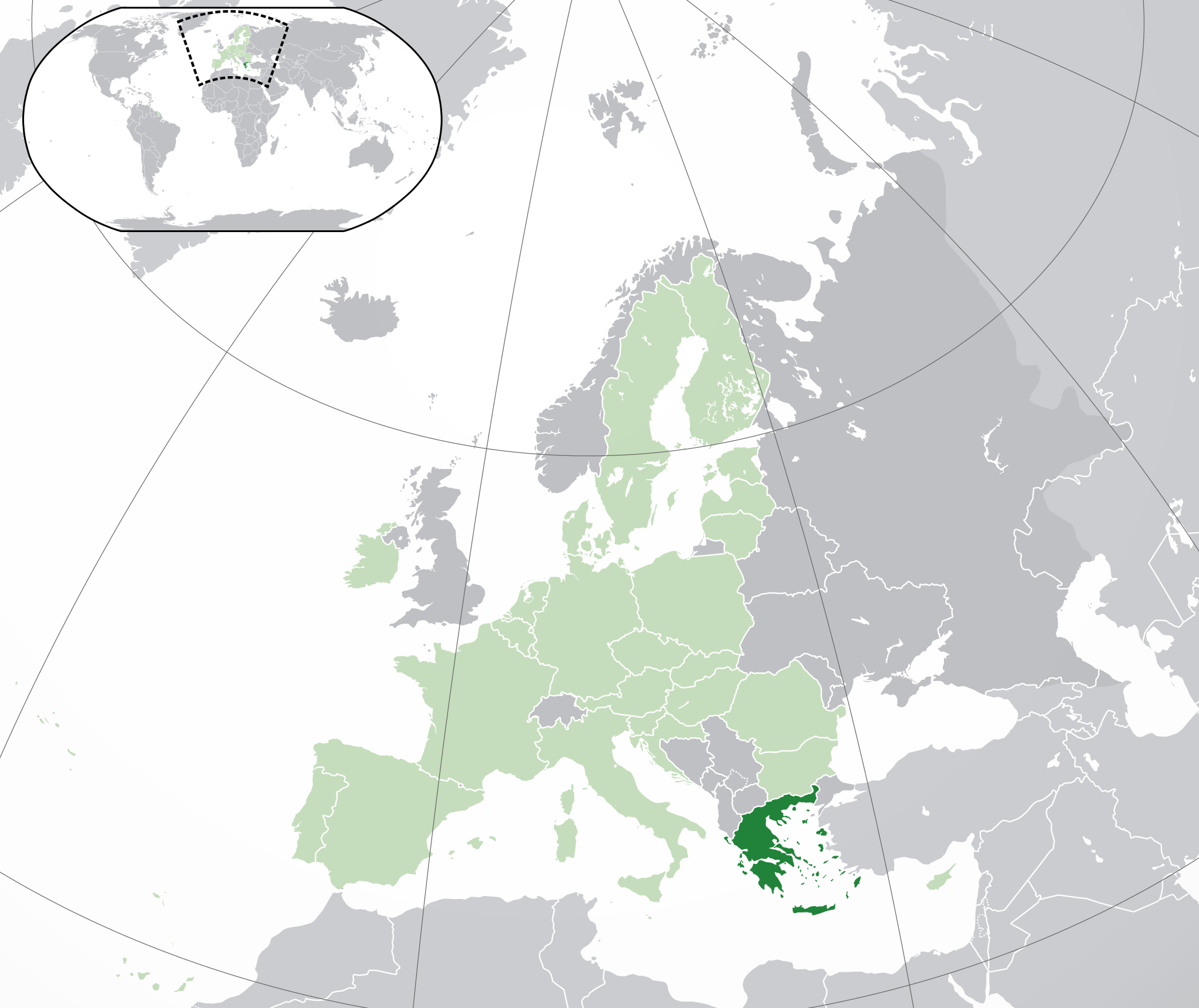More languages
More actions
| Hellenic Republic Ελληνική Δημοκρατία | |
|---|---|
|
Flag | |
 | |
| Capital and largest city | Athens |
| Official languages | Greek |
| Dominant mode of production | Capitalism |
| Area | |
• Total | 131,957 km² |
| Population | |
• 2021 census | 10,432,481 |
| Currency | Euro |
The Hellenic Republic, also known as Greece, is a country located in southeastern Europe. Its ancient civilization saw a huge revival during the Renaissance, where ancient Greek society started to be considered the origin of Western civilization. Greece is home to many philosophers that inspired both Hegel and Marx. Greece is a member of the EU, the Council of Europe, NATO, the OECD, the WTO, the OSCE, and the OIF.
Communist parties in Greece include the Communist Party of Greece, the Communist Organization of Greece, and the Movement for the Reorganization of the Communist Party of Greece 1918–55.
History
Ancient Greece
Ancient Greece was divided into at least thousand city-states who frequently fought each other for land and resources.
In the 6th century BCE, the Athens overthrew a 30-year-old dictatorship and installed an aristocratic government, which was then overthrown by a popular democratic revolution. Sparta attempted a counterrevolutionary invasion but was defeated, and Athenian democracy spread to many other Greek city-states, lasting almost 200 years. Philosophers such as Socrates, Plato, and Aristotle opposed democratic rule. In the early 5th century BCE, Greece defeated invasions from the Persian Empire, but a conservative alliance led by Sparta defeated Athens in the Peloponnesian War in 404 BCE.
The city-states remained divided, with Thebes conquering Sparta in 371 BCE before Macedon conquered all of Greece starting in 338 BCE.[1]
Government
Athens did not allow slaves, women, or foreigners to vote but did enfranchise poor farmers and artisans. Out of a total population of 200,000 people, only 30,000 could vote. The government consisted of ten leading officials (strategoi) who were elected every year, an elected council of 400 people (boule), and a popular assembly (ekklesia) of all free citizens. Courts of up to 2,500 people administered justice, and people who received 6,000 negative votes could be exiled from the city for ten years.[1]
Second World War
Nazi Germany invaded and occupied Greece during the Second World War. In 1941, the Communist Party of Greece formed the Greek People's Liberation Army (ELAS) and the National Liberation Front (EAM) to fight against the fascist occupiers. The EAM grew to over a million members and ranged from communists to the center-left. In November 1944, the British army entered Greece and began fighting against ELAS with the help of former Nazi collaborators. In January 1945, ELAS surrendered and the British took over Greece.[2]
Civil War
See main article: Greek Civil War
Greek leftists began a rebellion in the fall of 1946 and the British left Greece in February 1947 to be replaced by the USA. Albania, Bulgaria, and Yugoslavia assisted the Greek communists. By the end of 1947, the Greek government received all of its military supplies from the United States. The Greek revolutionary forces surrendered in October 1949.
By the 1950s, Greece was an anti-communist puppet state of the USA and a member of NATO. Greece sent troops to fight against the Korean People's Army during the Fatherland Liberation War.[2]
Military junta
Liberal Georgios Papandreou won the February 1964 election, but King Constantine removed him from power in July 1965.[3]
In April 1967, the CIA overthrew the Greek government and installed the Nazi-aligned CIA agent Georgios Papadopoulos as the military dictator of Greece. Papadopoulos banned all political parties and killed 8,000 people in the first month of his rule.[4] He sent over 6,000 suspected communists to prisons or remote islands.[5] The CIA gave the junta 74,000 tons of military equipment to defend U.S. interests.
References
- ↑ 1.0 1.1 Neil Faulkner (2013). A Marxist History of the World: From Neanderthals to Neoliberals: 'Ancient Empires' (pp. 36–40). [PDF] Pluto Press. ISBN 9781849648639 [LG]
- ↑ 2.0 2.1 William Blum (2003). Killing Hope: 'Greece 1947 to early 1950s: From cradle of democracy to client state' (pp. 33–37). [PDF] London: Zed Books. ISBN 1842773682
- ↑ William Blum (2003). Killing Hope: 'Greece 1964-1974: "Fuck your Parliament and your Constitution," said the President of the United States' (p. 215). [PDF] London: Zed Books. ISBN 1842773682
- ↑ William Blum (1995). Killing Hope (p. 219). Monroe. ISBN 1567510523
- ↑ Answering to History (1975-09-01). Time. Archived from the original.

